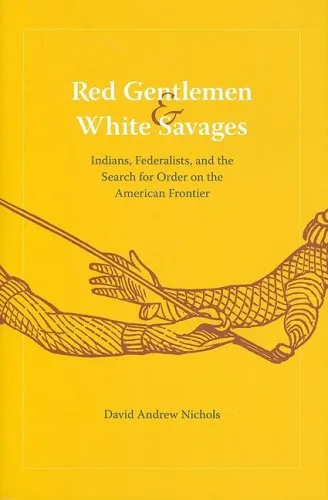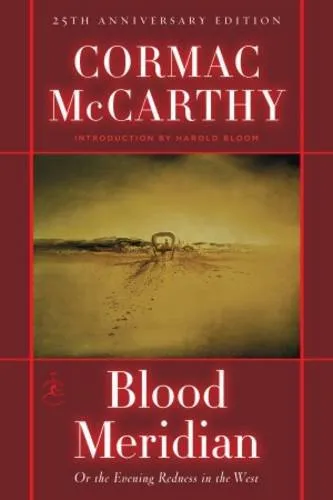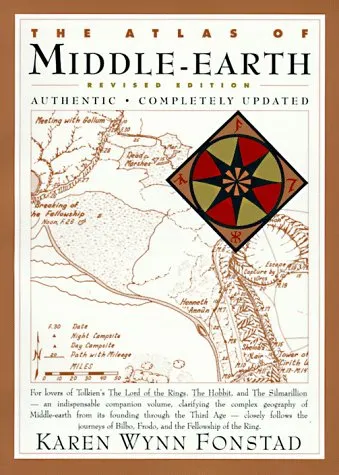Red Gentlemen and White Savages: Indians, Federalists, and the Search for Order on the American Frontier (Jeffersonian America)
4.5
Reviews from our users

You Can Ask your questions from this book's AI after Login
Each download or ask from book AI costs 2 points. To earn more free points, please visit the Points Guide Page and complete some valuable actions.Related Refrences:
Introduction to "Red Gentlemen and White Savages: Indians, Federalists, and the Search for Order on the American Frontier"
Welcome to an exploration of a critical era in American history, as chronicled in David Andrew Nichols' "Red Gentlemen and White Savages: Indians, Federalists, and the Search for Order on the American Frontier." This compelling narrative delves into the complex dynamics between Native American tribes and Federalist policymakers in the post-Revolutionary United States. Set against the backdrop of the fledgling Republic, this book provides an in-depth analysis of the challenges faced as the new nation sought to establish order on its Western frontier.
Detailed Summary of the Book
"Red Gentlemen and White Savages" meticulously examines the period from the end of the American Revolution through the early 19th century—a time marked by conflict, negotiation, and transformation. As the United States expanded westward, it encountered Native American tribes who were vital stakeholders in the nation's future. The Federalists, led by figures like George Washington and John Adams, viewed the establishment of peace and order in these frontier regions as essential to the survival and prosperity of the nation.
The book underscores the contrasting perceptions and policies towards Native Americans. Exploring the notion of Indians as both 'noble savages' and 'red men,' Nichols highlights how these views informed diplomatic and military strategies. The Federalists aimed to assimilate Native Americans into American civic life through treaties, trade, and cultural transformation. Yet, underlying these efforts were conflicts driven by land disputes and cultural misunderstandings, leading to numerous skirmishes and prolonged tensions.
Nichols provides an insightful analysis of key events and figures, such as the Northwest Indian War, the Treaty of Greenville, and leaders like Tecumseh and William Henry Harrison, who played pivotal roles in shaping the frontier's trajectory. The narrative is rich with details, illustrating the complexities of statecraft and the harsh realities faced by both Native Americans and Federalists during this transformative period.
Key Takeaways
- Understanding the Federalist approach to Native American relations is crucial to comprehending early American statecraft and expansion policies.
- The perception of Native Americans as both 'noble' and 'savage' significantly influenced federal policies and negotiations.
- The period was marked by a struggle to balance expansionist desires with the need for diplomatic relations and peace on the frontier.
- The outcomes of these times laid the groundwork for future American policies toward Native Americans, setting patterns that would persist throughout the 19th century.
Famous Quotes from the Book
"Societies in transition are fraught with contradictions, and nowhere was this more evident than on the American frontier, where disparate cultures clashed in a struggle for control and identity."
"The Federalists believed the transformation of the 'red man' into a 'white gentleman' was not only possible but essential to American progress."
Why This Book Matters
Nichols' work is significant for several reasons. It illuminates a pivotal moment in American history, enhancing our understanding of the nation's early years and the challenging path to consolidation and identity on its frontiers. By delving into the interactions between Native Americans and Federalists, this book sheds light on the roots of contemporary Native American issues, as well as on the historical foundation of U. S. expansionist policies.
Furthermore, "Red Gentlemen and White Savages" offers invaluable perspectives on leadership, cultural negotiation, and the enduring impact of historical narratives and policies. For historians, policymakers, and anyone interested in American history, this book is an indispensable resource that provides both a comprehensive overview and a thoughtful reflection on the American frontier's legacy.
Free Direct Download
You Can Download this book after Login
Accessing books through legal platforms and public libraries not only supports the rights of authors and publishers but also contributes to the sustainability of reading culture. Before downloading, please take a moment to consider these options.
Find this book on other platforms:
WorldCat helps you find books in libraries worldwide.
See ratings, reviews, and discussions on Goodreads.
Find and buy rare or used books on AbeBooks.
1280
بازدید4.5
امتیاز0
نظر98%
رضایتReviews:
4.5
Based on 0 users review
Questions & Answers
Ask questions about this book or help others by answering
No questions yet. Be the first to ask!















